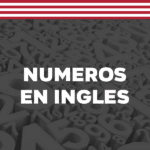The purpose of the connectors in German (and in all other languages) is establish a relationship of two types of sentences, which are classified as subordinate and main. Among the types of connectors the following can be mentioned:
- Coordinating conjunctions
- Subordinate conjunctions
Y also some adverbs that are used to link sentences correctly.
Learning connectors in German: types and examples
To learn German you have to avoid confusion, this is because connectors are words that connect sentences, but they are also used with the function of relative pronouns and as conjunctions of the German language.
Conjunctions in German (konjunktioren) generally are used to connect and match sentences in a grammatically correct way. According to their typology, conjunctions are classified into coordinating or subordinating and related to their function they can be disjunctive, causal and adversative.
Coordinating conjunctions are always used to give meaning to the main sentences and the most used are the following:
- Aber (but)
- Denn (well)
- Und (and)
- Sondern (fate)
- order (or)
- beziehungsweise (that is, that is)
Examples of coordinating conjunctions
- I have to go to school, but first I will have to do my homework: Ich muss zur Schule, aber zuerst muss ich meine Hausaufgaben machen
- The boy did the exam correctly and earned great recognition: Das Kind hat die Prüfung richtig gemacht und eine große Anerkennung erhalten
- It seems like it's dark or am I wrong: It's sieht so aus, als wäre is dunkel oder ich liege falsch
- The German language is a bit complicated, that is, it has a complicated grammar: Die Deutsche Sprache ist ein bisschen kompliziert beziehungsweise eine komplizierte Grammatik
Subordinate conjunctions are those used to form subordinate sentences, the presence of these connectors in German send the verb to the end of the sentence according to the grammatical rules of the German language.
- Als (when)
- Damit (for)
- Obwohl (despite)
- owährend (during - while)
- oweil (because)
- obwohl (despite)
- oseit (from)
- oseitdem (since)
- osobald (as for)
- Soviel (so)
Example subordinating conjunctions
- When I was a child I lived in Murcia: Als ich ein Kind war, lebte ich in Murcia
- I save money so my wife can buy a house: Ich spare Geld, damit meine Frau ein Haus kaufen kann
- I like children even though they are very naughty: Ich mag Kinder, obwohl sie sehr ungezogen sind
- While I was studying I concentrated on learning another language: Während ich studierte, konzentrierte ich mich darauf, eine andere Sprache zu lernen
- He does not work today because he is sick: Er arbeitet heute nicht, weil er krank ist
- I don't have the correct heating since I live in France: Ich habe nicht die richtige Heizung seit ich in Frankreich lebe
It is also important to mention another list of words that are used to properly connect sentences in German grammar:
- Also = therefore, therefore
- Anstatt = instead of
- Auch wenn = even, even
- Bis = until
- Da = like
- Dass = what
- Dennoch = nevertheless, in spite of everything
- Deshalb = therefore
- Doch = but
- Ehe = before
- Entweder ... oder = either ... or
- Falls = yes
Other examples
- Instead of studying, I have to work: Anstatt zu lernen, muss ich arbeiten
- You can earn a lot of money even if you work only one hour: Sie können viel Geld verdienen, auch wenn Sie nur eine Stunde arbeiten
- Until I am fifteen: Bis er fünfzehn is





